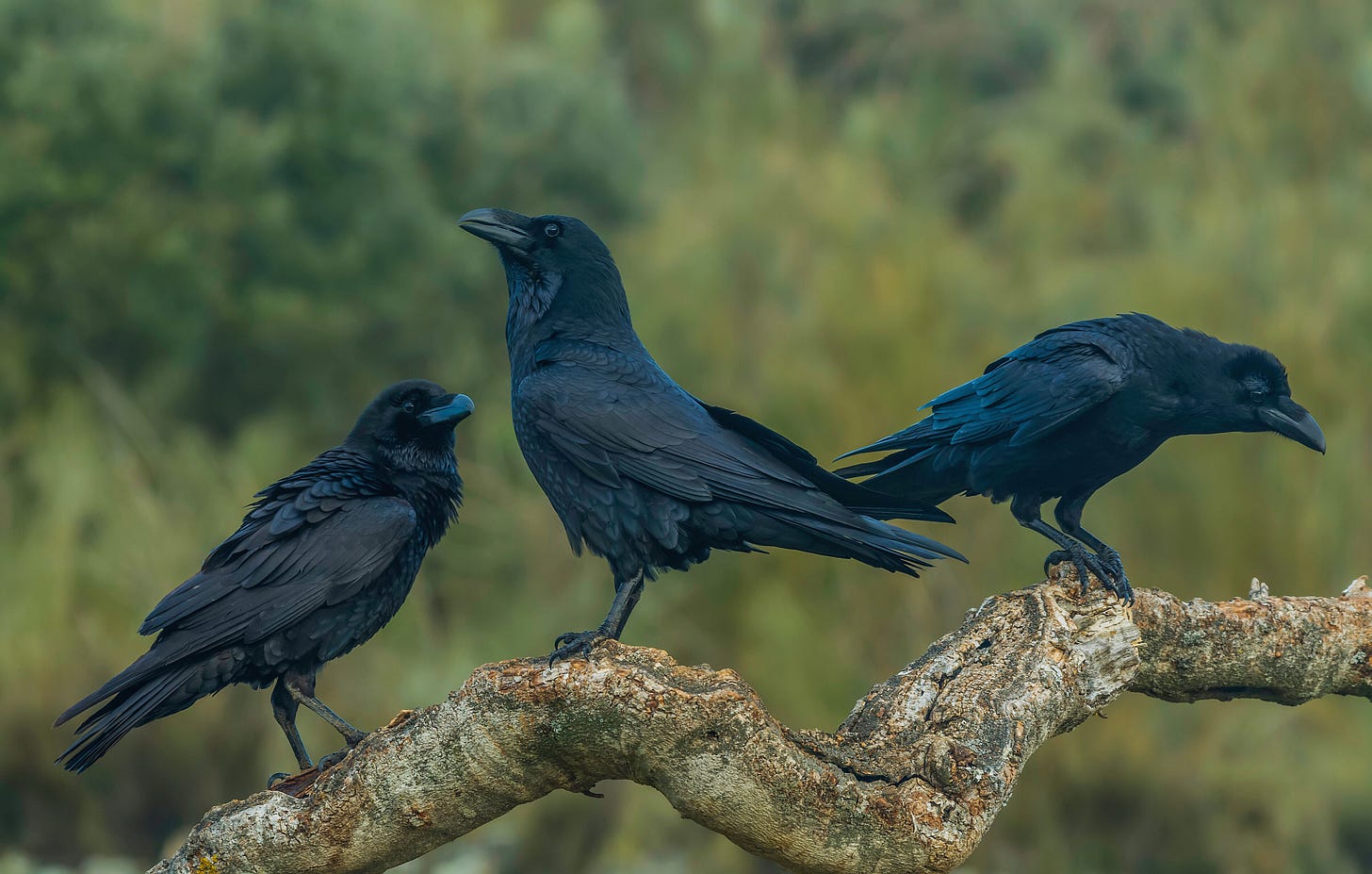flesh, bones, and breeze
the circumference of the unspoken
Hello. This post is about Death & Birds.
This week has seen us return to the loving embrace of a vitally autumnal England; the vibrancy of which, even on the greyest of days, soothes my aching heart—parts of which remain firmly entrenched within a pair of four-legged beings in Africa. I dream of them, and the kisses of mine which belong upon their foreheads hang in the cold morning air, nowhere to land. Grateful, then, am I to have walked into the time of year which feels most like home—a concept which, to me, seems quite amorphous. My beloved is home. The winged, are home. The earth in which my mother’s bones rest, is home. Slowly, this body of mine becomes home. Home is where twenty-two Magpies polkadot the lawn, and where three large Crows police them. It is where wings both wide and miniature manipulate the air to their will, and where tiny lungs compel the sun to rise—so that they might once again sing it to sleep. Reverence to these beings who dance with the days, who speak dusk and dawn, and keep time with the ancient rhythm. May I only ever become more birdlike.



